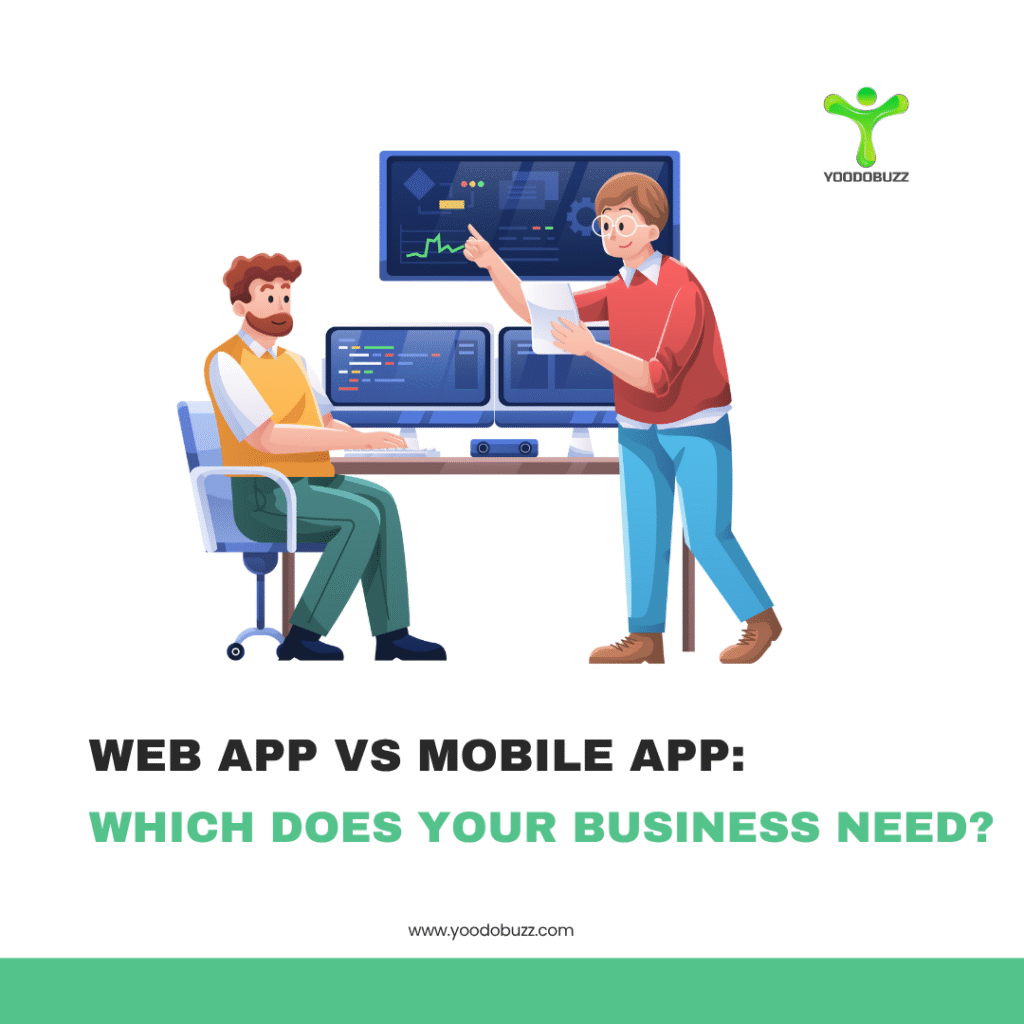In today’s rapidly evolving digital world, every business—whether small, growing, or established—needs a strong online presence. But a common dilemma arises:
Should your business invest in a web app or a mobile app?
Both serve unique purposes, offer powerful benefits, and come with different development requirements. Understanding the difference is crucial to choosing the right platform for your goals.
What Is a Web App?
A web app is an application accessed through a browser such as Chrome, Safari, or Firefox. It doesn’t require installation and works across devices like laptops, desktops, tablets, and smartphones.
Web apps are ideal for businesses that want broad accessibility and quick deployment. They are cost-effective, easy to update, and perfect for platforms that don’t need deep integration with device features.
What Is a Mobile App?
A mobile app is a dedicated application installed on smartphones or tablets through app stores like Google Play or the Apple App Store.
Mobile apps offer faster performance, a smoother user interface, access to device features (camera, GPS, notifications), and the ability to function offline. They are built for high engagement and long-term customer interaction.
Web App vs Mobile App: A Clear Comparison
When comparing web apps and mobile apps, the core differences lie in accessibility, performance, cost, and user experience. A web app is easier to access because it runs directly in the browser—no download needed—making it perfect for instant reach. However, it may depend heavily on internet speed and lacks advanced device integrations.
A mobile app, on the other hand, offers a richer, more interactive experience. Features like biometric login, GPS navigation, camera scanning, push notifications, and offline access are only possible through mobile apps. They usually require a higher budget and longer development time, but they deliver superior engagement and brand loyalty.
In short: web apps provide convenience and affordability, while mobile apps offer performance and deeper user connection.
When Your Business Should Choose a Web App
A web app is the better choice when:
You want wider, instant access without requiring downloads
Budget is limited and speed-to-market is important
Your platform doesn’t rely on device features
You need easy maintenance and regular updates
Your product is a dashboard, CRM, ERP, booking system, or SaaS tool
Web apps are excellent for businesses that want functionality and reach without the complexity of app installation.
When Your Business Should Choose a Mobile App
A mobile app is ideal when:
You want to offer a premium, interactive user experience
Your product needs camera access, GPS, gallery, audio, or notifications
Offline access is important
You aim for long-term customer retention
Your users frequently interact with your service
Mobile apps work best for industries like delivery services, fitness and health, e-commerce, fintech, travel, and social platforms, where users expect high engagement and convenience.
Questions to Help You Decide
Ask yourself these key questions:
What is my budget?
– Lower budget → Web App
– Higher budget → Mobile App
How much user engagement do I need?
– Moderate engagement → Web App
– High engagement → Mobile App
Do I need access to device features?
– No → Web App
– Yes → Mobile App
Is instant, wide reach important?
– Yes → Web App
– No → Mobile App
Do I eventually need both?
Many brands start with a web app and later launch a mobile app as they scale.Conclusion: Choose the Platform That Aligns With Your Business Vision
There is no universal answer—your decision depends entirely on your business model, audience behavior, and long-term goals.
A web app offers convenience, reach, and affordability. A mobile app delivers engagement, speed, and advanced functionality.



